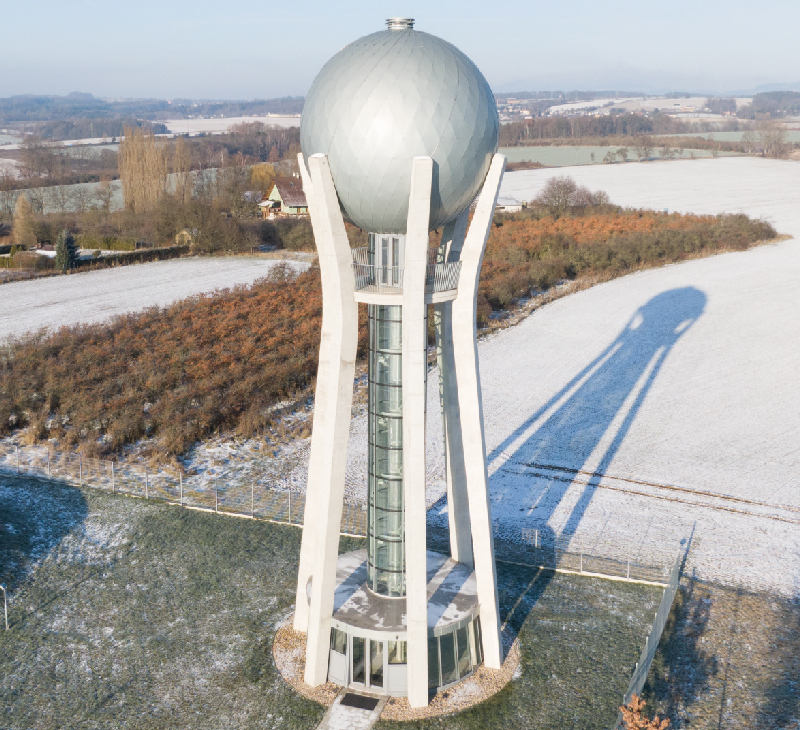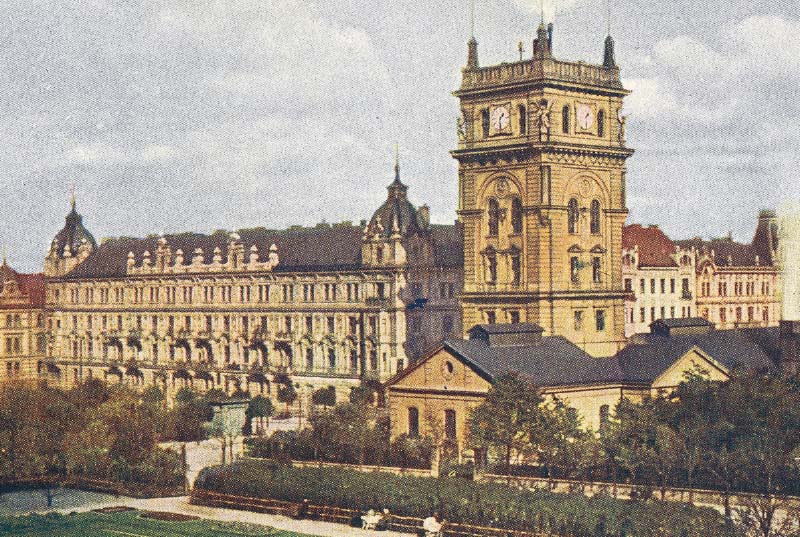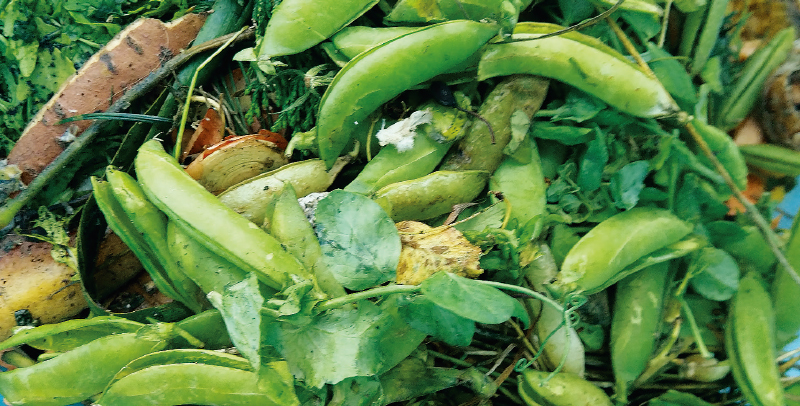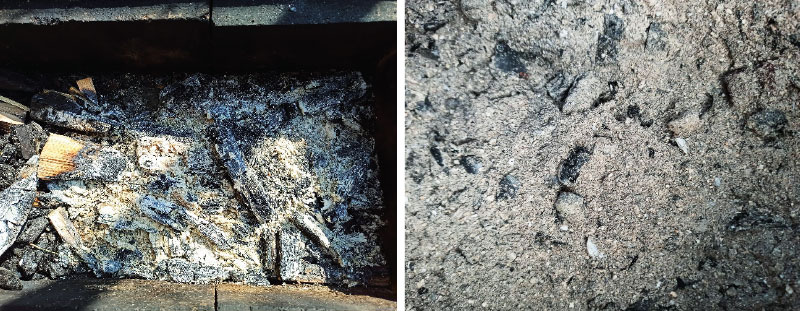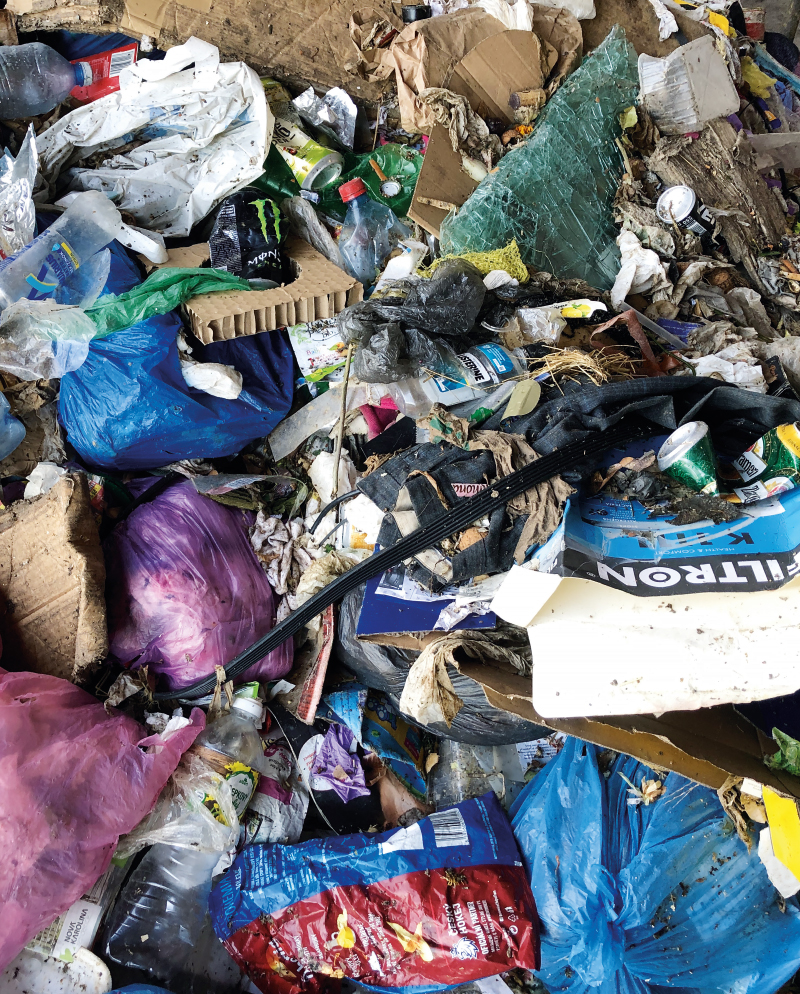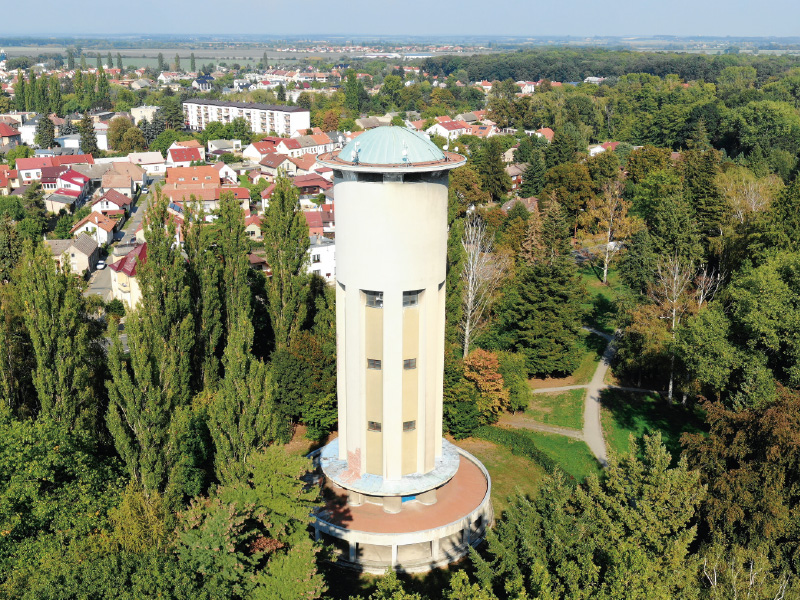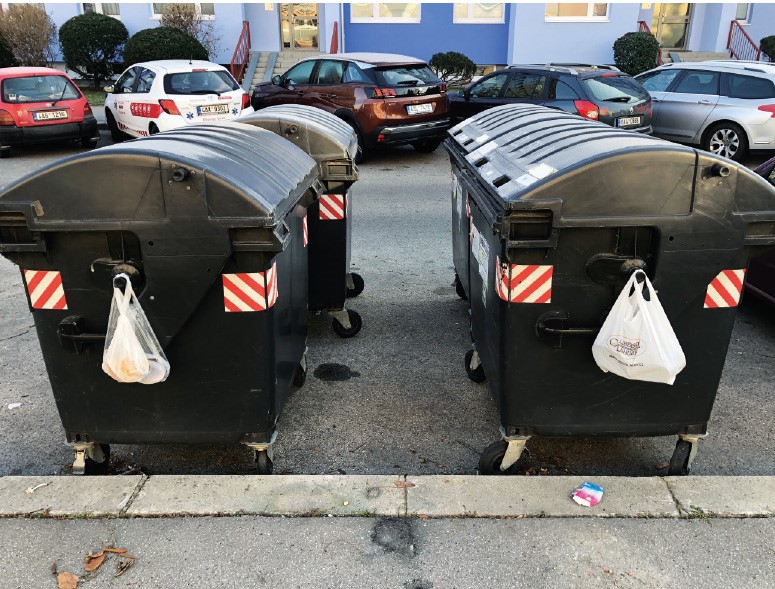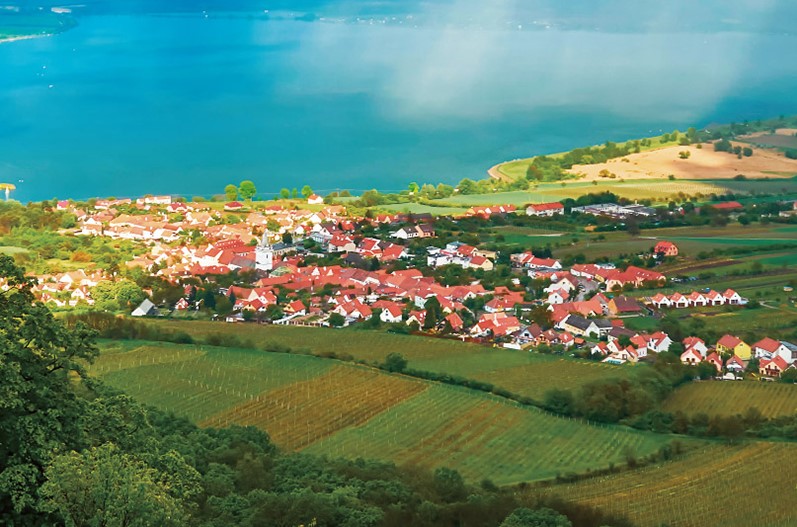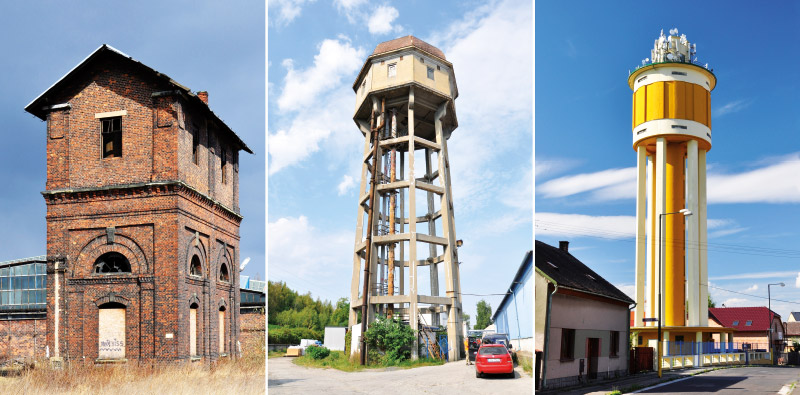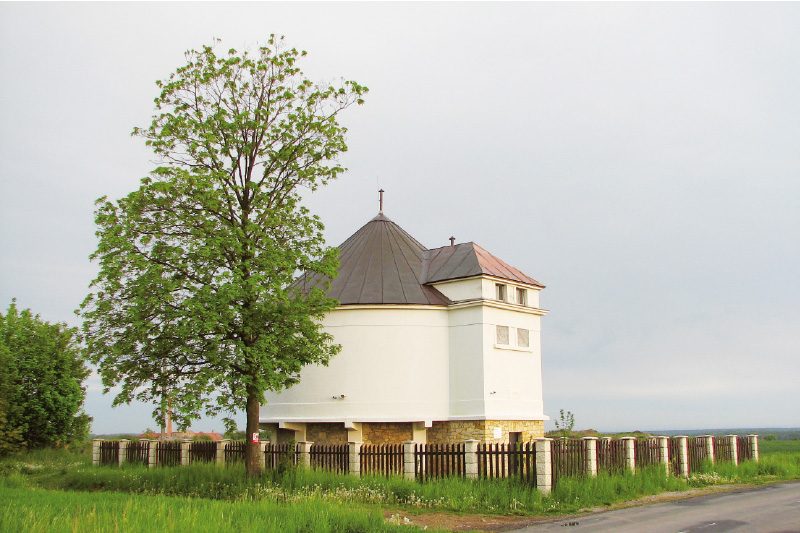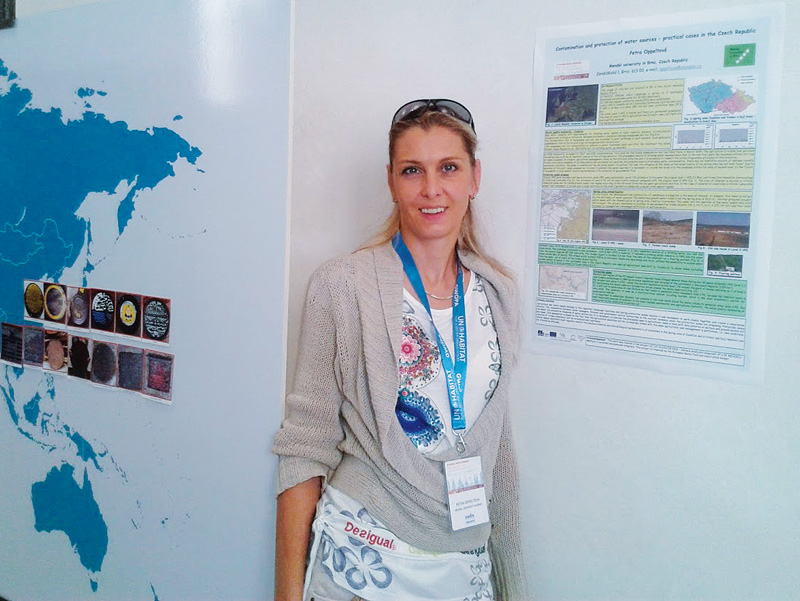Current research at TGM WRI on municipal biodegradable waste and food waste
Since 2021, research on selected issues related to the collection, sorting, processing, and reuse of selected types of biodegradable waste has been carried out at TGM WRI within the „Centre of Environmental Research: Waste management, circular economy and environmental security“ (CEVOOH), which was supported as part of the call of the Technology Agency of the Czech Republic „Environment for life“, Subprogramme 3 „Long-term environmental and climate perspectives“, for the period 2021–2026. The research follows on from a number of partial research projects and tasks, an overview of which can be found, for example, on the HEIS WRI website [1] under the Projects tab.
Methods of collection and management of biodegradable municipal waste in selected countries of the European Union and current results from moisture loss measurements
The ever-increasing amount of waste, including biological waste, is causing serious problems in modern society, such as the filling of municipal waste landfills, which subsequently produce greenhouse gases. For society to deal with this problem, the legislation of some member states of the European Union (EU), including the Czech Republic (CR), has introduced new obligations to support the prevention of waste generation and its increased recycling and reuse. In 2020, the European Commission released the Circular Economy Action Plan, which provides guidelines for many countries on renewables and waste. However, in some cases the current measures are not enough. A new law on waste was adopted in the Czech Republic, which specifies the obligation to sort biological waste for legal entities and natural persons who allow physical persons to dispose of municipal waste in their establishments.
This article brings the current interim results of research project SS02030008 “Centre of Environmental Research: Waste Management, Circu-lar Economy and Environmental Security (CEVOOH)”. It deals with a brief description of biodegradable municipal waste (BMW) collection in some EU countries and draws general conclusions from the facts found. It also deals with the current results of measuring the moisture loss of biological waste in order to fulfil the obligation of the Czech Republic to report the quantity of this waste in its “fresh” state.
Presentation of some of the results of a research project mapping the development of the construction of elevated water tanks in the Czech Republic
This paper presents a summary of some of the results of the research project, “Water towers – identification, documentation, presentation, new utilization”, (DG18P02OVV010), which has been implemented since 2018 as part of the Programme for the Support of applied Research and Development of National and Cultural Identity for 2016–2022 (NAKI II) of the Ministry of Culture of the Czech Republic. In terms of content, it follows on from articles from previous years published in this periodical, but clarifies and supplements the issues of technical terminology and typology established at its inception based on the knowledge gained during the project. Furthermore, it presents general results of the records of the structures of elevated water tanks and focuses on a brief description of the historical development of these structures in our territory.
Interview with Ing. arch. Eva Dvořáková and Ing. arch. Tereza Bartošíková, Ph.D., about protection of technical and industrial cultural heritage in the Czech and Slovak Republik
As part of the December issue of VTEI, which is entirely devoted to the topic of technical and industrial cultural heritage and the “Programme of applied research and development of national and cultural identity (NAKI II)” of the Ministry of Culture, we asked for an interview with two specialists in this field, Ing. arch. Eva Dvořáková from the National Heritage Institute (Národní památkový ústav, NPÚ) and Ing. arch. Tereza Bartošíková, Ph.D., from the Monuments Board of the Slovak Republic (Pamiatkový úrad Slovenskej republiky, PÚ SR).
Food waste issues in relation to the mandatory reporting of its production for the needs of the Waste Framework Directive
From this year, European Union member states are obliged to introduce preventive measures that will reduce the amount of food waste at all stages of the food chain. This article deals with this current topic, presents possible procedures for obtaining data on food waste production at various stages of the food chain, and shows the results of our own research and analysis about the usability of these data for reporting obligations and demonstrating future reductions.
Ash management in the circular economy of municipalities
Ash from small heat sources is produced by burning solid fuels such as wood and coal. Based on a survey conducted by the article authors, ash from small heat sources can be considered the most significant waste stream in smaller municipalities in the Czech Republic. This material has considerable potential for reducing waste production, landfilling and consumption of primary raw materials.
Municipal waste management in the light of new regulations
Modern municipal services in solid waste management usually include cleaning and cleaning of public spaces, collection, transport, recycling and disposal of generated waste. Solid waste management services are among the most expensive and complicated municipal work systems for the public. At the same time, it can also be the least awarded communal service. Water, electricity, firefighting and police protection meet the daily needs of residents and businesses fundamentally and immediately. Therefore these services are given a much higher priority by the community and its leadership. Waste management services are usually one of the most minor „fragrant“ public services, but their flawless functionality and efficiency have far-reaching implications.
Unrealized tower water tanks
Předložený příspěvek uvádí několik případů nerealizovaných projektů věžových vodojemů na území České republiky. Zabývá se technickým řešením neuskutečněných objektů a zároveň uvádí, jaké důvodu vedly projektanty, úřední orgány nebo investory k hledání jiného řešení.
Monitoring of waste services for sorted components of municipal waste in the Capital City of Prague
Management každé obce, kraje, potažmo státu potřebuje ke svému rozhodování a plánování základní vstupní data, která dokladují aktuální skutečnost. Nejjednodušší způsob, kterým lze získat data o produkci odpadu a nakládání s ním, je monitoring v předem nastavených pravidelných intervalech.
Ways of biowaste management in Prague and in selected major cities of the European Union
Bioodpad neboli odpad podléhající anaerobnímu nebo aerobnímu rozkladu se díky způsobu využívání zelených ploch zejména ve velkých městech s velkou hustotou osídlení stal problematickou složkou komunálního odpadu.
Determination of basic typology of elevated water tanks
Příspěvek přináší prvotní pokus o systematické pojetí stanovení typologie věžových vodojemů pro potřeby řešení výzkumného projektu Věžové vodojemy – identifikace, dokumentace, prezentace, nové využití. Navazuje na předchozí stanovení odborné terminologie problematiky a definování objektu zájmu. Z typologického hlediska je na věžové vodojemy nahlíženo jako na nedílnou součást větších technologických celků – vodovodních systémů. V rámci základního dělení je pak sestavena typologie věžových vodojemů založená na výběru parametrů – stavební situace věžových vodojemů ve vztahu k dalším objektům, funkce věžových vodojemů, nosná konstrukce, tvar a materiál akumulační nádrže, počet nádrží a účel objektu.
Water towers – research project mapping the development and a form of tower water reservoirs on our territory
The paper presents a summary of input information about the research project Water towers – identification, documentation, presentation, new use. It deals with the development of tower water reservoirs in the present territory of the Czech Republic from the beginning of their creation to the present.
Interview with experts on the topic of water resource protection zones
The interview deals with the analysis of the current situation in the area of water protection zones often discussed today. The questions are answered by experts Ing. Jiří Novák of Vodárenská akciová společnost, a. s., Brno and Ing. Petra Oppeltová, Ph.D., from the Mendel University in Brno.
Actual situation of the protection zones of water resources problems
The current situation in the field of water resources protection zones in the Czech Republic is problematic for a long time, not only in terms of their definition, but also the correct setting measures or data availability to the public.
Water towers – re‑use of specific industrial heritage
The issue of a new usage of industrial heritage (often referred to the concept of conversion) is the current trend of today. Also, water towers shutdown from water networks and stripped of their original mission can offer instead of decay or demolition attractive alternatives to new life.


